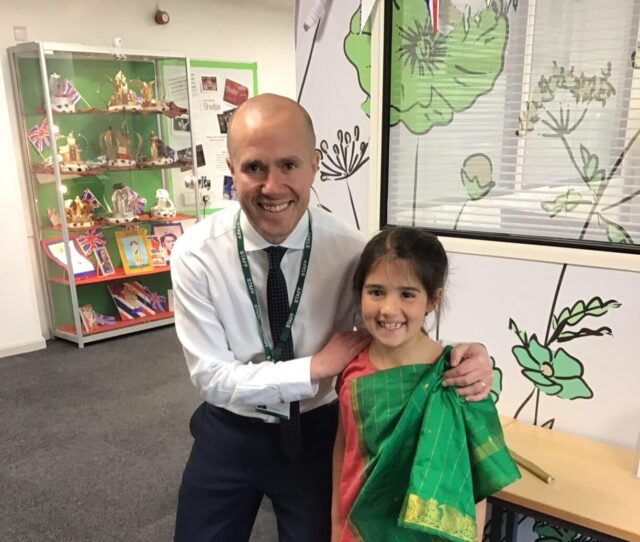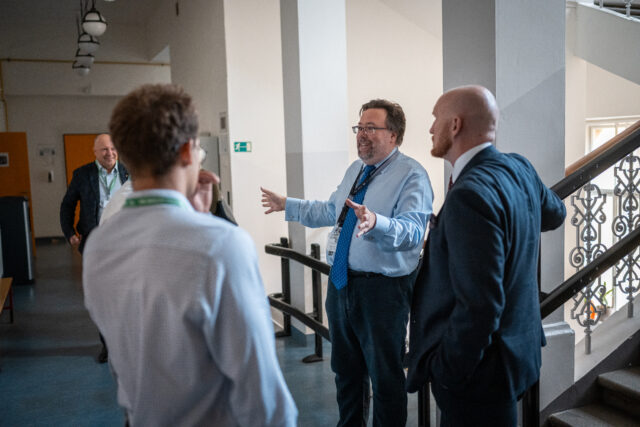Blog
Just shout louder and slower?

Sophie Blewitt
Head of Languages and Assistant Head Professional Development, Sherborne Girls
Read the blog
One of our Upper Sixth pupils recently told me that the two differences between French and British life that had surprised her the most when on an immersive music trip to France this summer were these: meal times were lengthy, relaxed and not merely for refuelling; and, that teacher feedback was not effusive with praise, but focused on what needed to be done to improve.
She had, in a nutshell and in her own particular way, discovered what it means to learn more about another culture. French lessons in the United Kingdom are one thing, but using that language to explore another part of the world is another. We discussed her observation about feedback: having initially felt that it was rather cruel and unnecessary, she came to understand during the trip that it was simply the teachers’ way of ensuring that the musicians made progress. They did not have to tell them they were wonderful musicians – that was a given as they had been selected to be there – but the teachers’ role was to help pupils improve. She then went on to question quite why British teachers are so ready to praise pupils.
Cultural diversity does that. Not only do you learn more about other cultures, but it also makes you question your own culture and what you accept as the norm.

Linguistic diversity is utterly crucial as we seek to learn more about one another as global citizens. This is something our pupils feel keenly. Reading through personal statements as candidates apply to language courses at university, it has been fascinating to see how many have made reference to how they are only now appreciating nuance in language. They are starting to recognise that exploring how, when and to whom certain words should be used is as important a part of their learning both inside and outside the classroom, as the structural knowledge about how another language is constructed.
We are lucky enough to be able to offer A Level language pupils the chance to apply for a travel scholarship to further their learning of a language in a country where that language is spoken. In recent years girls have taught English in Guatemala, taken part in a film-making project in Spain, completed a bar-tending course in Paris and done work experience in China. These experiences are not possible if you simply shout English words louder and slower. They require linguistic diversity.
Real understanding of a culture can only come with linguistic understanding. The two are inextricably linked. Linguistic knowledge and some degree of confidence allow you to communicate effectively and appreciate what the other person is bringing to the conversation. The higher the level of language, the greater the level of nuance and the greater the understanding.
This is true in multicultural and multilingual schools. Most schools in the UK are both these days, and as we start celebrating the European Day of Languages this week, there will be a spotlight on encouraging an exploration of others’ languages. Hopefully you will have pupils leading language-learning sessions to teach their peers some of their own language. Greater cultural understanding, improved cohesion within the group and a stronger realisation that we are all global citizens will follow.
The aim of all pupils becoming positive, curious and respectful global citizens sits at the heart of Sherborne Girls and in the Languages Department we are lucky enough to enable girls through linguistic diversity to develop all of these qualities through whichever path suits them best.

The addition into our curriculum of internationally-recognised qualifications by the French, German, Spanish and Italian governments in the form of DELF, Goethe, DELE and PLIDA certification, as well as British-based language qualifications in Japanese, mean that our pupils are not constrained to learning languages through traditional A Level qualifications. The diversity of languages and qualifications on offer mean that pupils can develop their linguistic understanding in the way that they wish to, and as a result over a third of our Lower Sixth form are studying a modern foreign language in one way or another.
As many of our Upper Sixth form look ahead to studying languages at university, they are excited by the prospect of living abroad. Increasing their linguistic diversity to become truly global citizens is their raison d’être and we could not be more proud.


